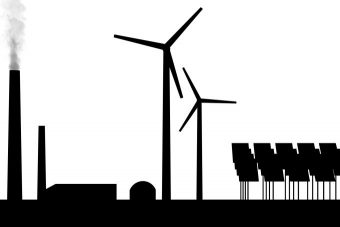
Northern Ireland’s renewables industry has today published a new low carbon Energy Strategy and called on the government to adopt a number of new targets to ensure recent progress in deploying renewables across the province is maintained.
The report from Northern Ireland Renewables Industry Group (NIRIG) argues the country is on track to meet an industry target of securing 40 per cent of its power from renewables before 2020. It details how investment in the region’s onshore wind sector has helped curb energy costs for consumers across the all-island Single Electricity Market and delivered £2.7m of investment in the local economy for every turbine installed.
But the report argues a longer term strategy is now required to ensure Northern Ireland’s energy sector is fully decarbonised by 2050.
It predicts Northern Ireland could become a world-leading pioneer of energy storage, smart grid, and electric vehicle technologies, but argues a “step-change” in how businesses and policy makers view energy regulation, demand and management is required.
The new document recommends a wide range of measures to provide “much-needed long-term policy certainty”.
Specifically it calls for a new target for the decarbonisation of Northern Ireland’s energy sector by 2050 and a review of the impact of Brexit on energy policy, alongside a renewed focus on delivering the skills and innovation required to build a clean energy system.
It also reveals NIRIG is commissioning research into the creation of a 70 per cent target for renewable electricity by 2030 as a stepping stone towards a full decarbonisation target.
“There’s an urgent need to plan for the post-2020 world in which clean energy will be an engine for economic growth,” said NIRIG Chair Rachel Anderson a statement. “A more diverse, flexible energy mix will increase energy security, as well as generating cheap power for consumers. This brings enormous economic opportunities to Northern Ireland by attracting regional investment, promoting innovation and developing skills.
“We now need a fundamental shift in how we generate, manage and consume energy. The transformation of the energy sector is happening today, and our industry is at the forefront of this transformation. The renewables sector wants to contribute, but we can’t do it alone – leadership and collaboration will be crucial for success. That’s why we’ve laid out a series of ambitious and far-reaching measures in this Energy Strategy.”
In related news, renewables developer Element Power announced yesterday it has secured planning permission for the new Moanvane 40MW onshore wind farm in Co. Offaly, Ireland.
The 10 turbine project is expected to deliver enough clean power for around 28,800 homes a year.
“We are delighted with the decision of Offaly County Council to grant planning consent for Moanvane Wind Farm,” said Pat O’Sullivan, head of communications and stakeholder engagement for Element Power in Ireland. “This project will not only help tackle climate change by generating clean, green and reliable energy for Irish households and businesses but will also bring significant opportunity to the area.”
O’Sullivan added that with planning permission now granted the company would work with the local community on community ownership opportunities, a local amenity trail, and the proposed structure of a community benefit fund.
Source: businessgreen.com

